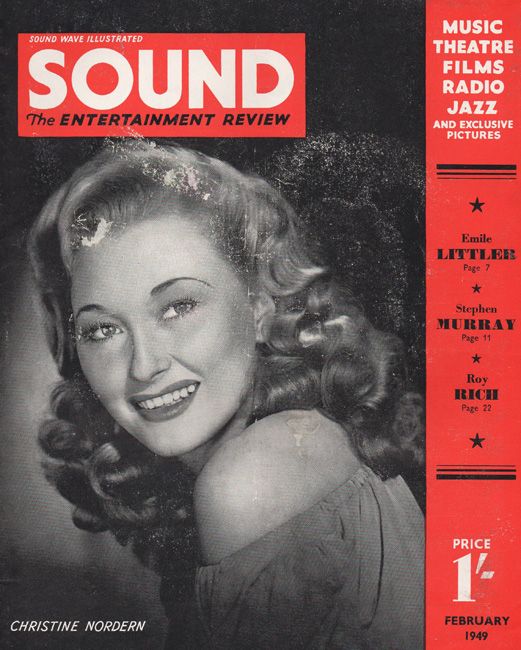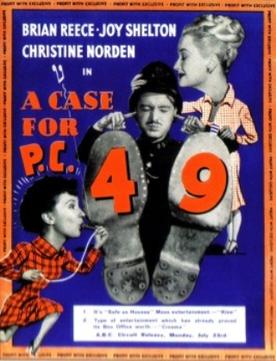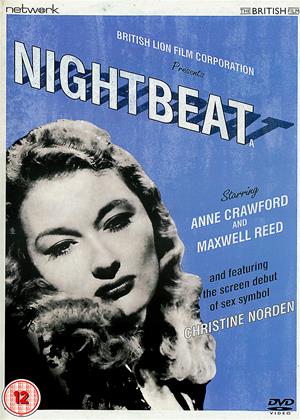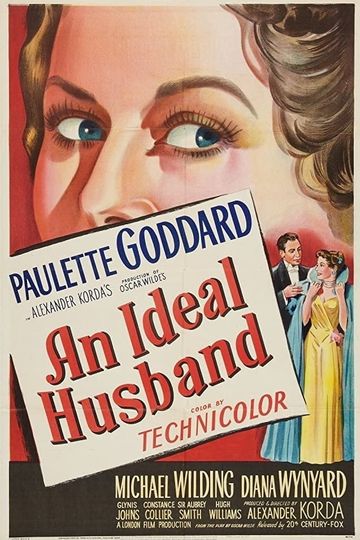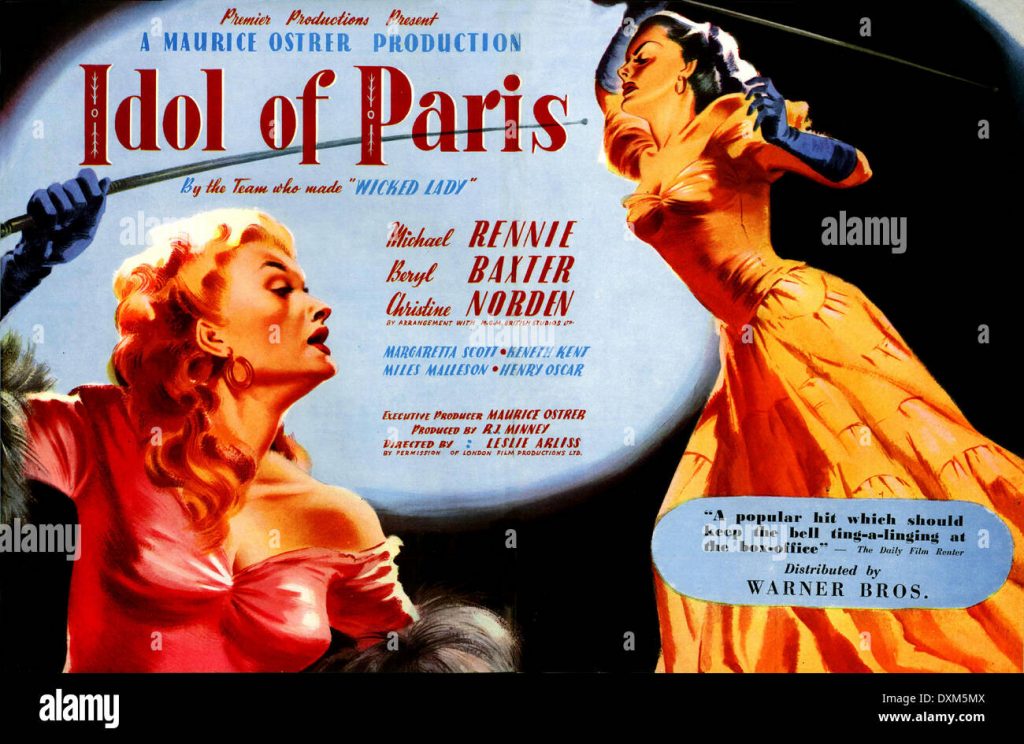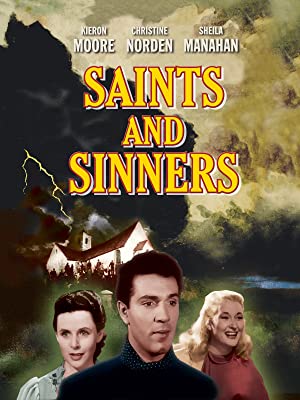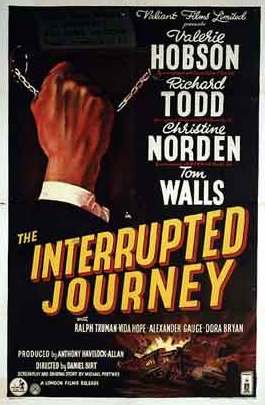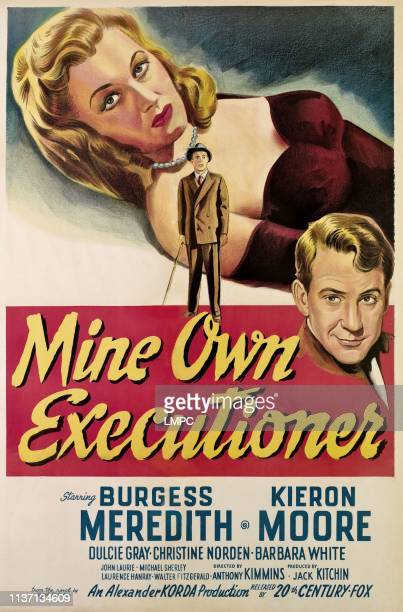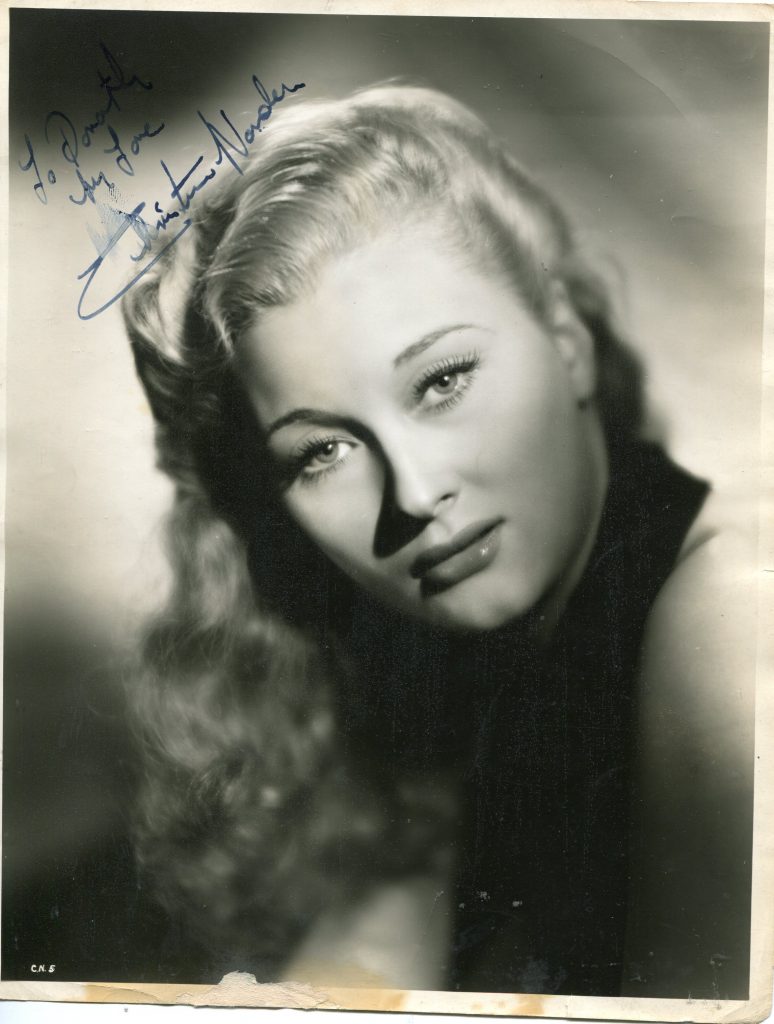
“Independent” obituary by David Shipman:
Mary Lydia Thornton (Christine Norden), actress, born Sunderland 28
December 1924, married 1944 Norman Cole (one son), 1947 Jack Clayton,
1953 Mitchell Dodge, 1956 Herbert Hecht, 1980 George Heselden, died
London 21 September 1988.
ChristineNorden occupies a small, but secure, niche in British film history as Alexander Korda’s first post-war star. British film-stars of the pre-war period, Gracie Fields and George Formby always excepted, were there courtesy of the stage (Laurence Olivier, Vivien Leigh) or Hollywood, allowing them to work here (Leslie Howard, Robert Donat). But during the war the British cinema discovered a flock of artists who were genuine box-office attractions, starting with Margaret Lockwood and James Mason. Korda, returning to production in Britain in 1945, had either to filch or borrow these (in this respect he was far more successful with behind-the-camera personnel) or create his own. The first he created was Christine Norden. She was also the last.
The publicity lie was that he spotted her in a cinema queue. Well, they got a lot of press mileage out of it. Picturegoer, Picture Show and the popular press featured her prominently: British moviegoers panted for their first glimpse of her. Since she was blonde and sexy, and since Miss Lockwood had made this an era of wicked ladies, it was not surprising that Korda chose for her first role that of a devious night-club singer, in Night Beat, but the film itself went out without his London Films logo because he did not think it of a standard to re-introduce his work. Its hero (Ronald Howard) was a cop going bent because of Norden, who is more interested in a ‘you’re my sort’ affair with a slimy night-club owner (Maxwell
Reed): at the climax she sings his favourite song, has a big drunk scene and falls to her death. She and the film were ludicrous, but she, at least, could claim inexperience.
Korda and MGM (since she was technically under contract to both, as he had signed her during his brief association with that company) loaned her the following year to Premier, the company started by the Ostrer brothers after their break from Rank. With Rank, the Ostrers had mined gold with a series of pseudo-Gothic melodramas: but Isle of Paris proved the beginning and end for Premier. Norden played the Second Empire courtesan Cora Pearl, engaged in a duel of whips with the heroine – Beryl Baxter, obviously chosen for her resemblance to Miss Lockwood. The critic CA Lejeune felt that she would be failing in her duty if she discouraged anyone ‘from sharing this unique experience .. . Such stupendous imbecility in a film, delivered with such portentous gravity in such excruciating dialogue, demands a sort of recognition.’
Miss Norden’s hysterical performance could not now be explained by inexperience; Korda gave up on her fifth film for him, Saints and Sinners, a load of blarney co-starring her male equivalent, Kieron Moore, which literally emptied cinemas. She carried on vamping four more times, twice in unabashed B movies, then left to discuss Hollywood offers’. It was true that she had married an American – her second husband had been Jack Clayton, later to direct Room at the Top but American show-business was not too welcoming: in 1960 she did
manage to get a role in a Broadway musical, Tenderloin, but not one which enabled her to get her name on the adverts.
In 1983, the National Film Theatre showed Isle of Paris, and in a flurry of press releases Miss Norden announced that she had no intention of making a comeback. She did, however, appear at the National Film Theatre with a press agent, in a profusion of diamonds and an elaborate pill-box hat, her full-length velvet dress under a riding habit in several shades of green, none of them too different from the paint on the walls of NFT 2. She laughed a little too loudly during the duel scene and the rest of us laughed through all of it.Miss Lejeune was right: for connoisseurs of bad movies it is the most
cherishable of them all.
